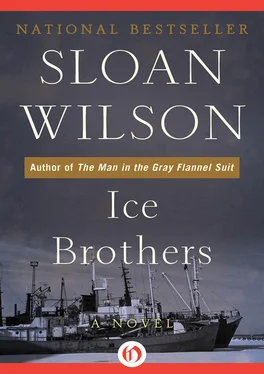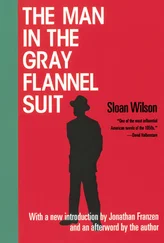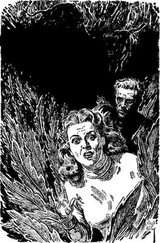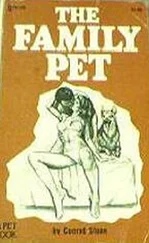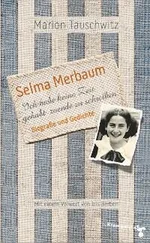Now Nathan could almost smell the tar of that roof on a hot summer evening and hear the pigeons cooing in the nests he had built for them when he had been even younger. Homing pigeons! Becky at the age of fifteen had been even more fascinated by them than by the telescope. He had helped her to carry two pigeons to her apartment in a carefully pierced cardboard box. They had released them in her backyard and how she had marveled when they had flown straight home, a distance of almost four blocks!
“If I raised some, we could send messages back and forth.”
There never had been a time when he had not known Becky. Her parents had been friends of his mother and father, though they were so different that even as a child, Nathan had not been able to understand why. Nathan’s father was a doctor, a poor man’s doctor, and his mother served as his receptionist and nurse, though she had no formal training. The doctor’s office, which occupied almost the entire first floor of their house, was usually full of sick people, and at all hours of the night his father was called to hospitals and to the homes of the dying. Nathan remembered his house as a kind of crisis center. The conversation of his parents, even at the dinner table, was full of tales about the complications of childbirth, the sudden deaths of heart patients and the slow deaths of those with cancer. His parents were usually exhausted, and as a boy he sometimes felt that they were the only two people in the world who were attempting to save a dying city.
But Becky’s household was entirely different. Her father was a professor of the Slavic languages at Brooklyn College, where he apparently had few duties, for he spent most of his time at home reading and writing. His wife also spent most of her time reading, though she found time to cook elaborate meals and keep their apartment spotless. Even Becky at a very early age spent most of her time reading, and they all often read to each other and laughed over funny passages or discussed difficult ones. The house was always quiet, and the people in it moved in a leisurely manner compared to the frantic pace of Nathan’s parents. No one in that household was mad at anybody. The professor and his wife, who were considerably older than Nathan’s parents, had come from Warsaw to Brooklyn fairly recently, and they retained the detached amusement of highly educated foreigners about American political issues and controversies of the day which often made Nathan’s parents argue stridently when they weren’t talking about people being born or dying.
Almost nothing appeared to irritate Becky’s mother and father, and even at sixteen, she was curiously serene and sunny in a world which to Nathan was almost entirely frantic and stormy. She even liked Brian Murphy’s Christmas display.
Brian Murphy’s annual Christmas display always infuriated Nathan’s father and everyone else he knew. Murphy was a successful electrical contractor who owned a new house on a double lot in a predominantly Jewish neighborhood near Nathan’s home in the Flatbush section of Brooklyn. Starting in early November, Murphy put together such a garish Christmas display of his own making that his house looked like a carnival. At least a dozen Santa Clauses, some life-size, crowded his front lawn and his rooftop. Driven by electric motors, some of these kept raising their hands in greeting or just sat rocking, supposedly with mirth, but they looked to Nathan more like old men in terrible pain. On Murphy’s front porch there was a crèche with eerie life-size plaster people with vacant, staring eyes. Worst of all, the whole double lot blazed with blinking colored lights, and loudspeakers blared Christmas carols interspersed with Santa’s ho-ho-ho’s. During Murphy’s many Christmas parties, the lights and the loud music continued until the early hours of the morning.
Among Murphy’s neighbors was a fierce old friend and patient of Nathan’s father whose wife was chronically ill, and who always had trouble sleeping. After an argument, he sued Murphy for disturbing the peace, and a whole neighborhood war started with all the obvious ugly undertones. Petitions were taken from door to door, and Nathan’s father appeared as a witness in court to say that his patient’s health had suffered. Murphy won the case anyway and celebrated by building a sled with life-size reindeer which rocked and blew steam or smoke from their noses on his rooftop. Spotlights played on this all night.
“Isn’t that awful?” Nathan said when he and Becky were walking past the display, and he was astonished when she laughed and said, “Why? I think it’s sort of marvelous.”
It turned out that Becky actually knew Brian Murphy and liked him, as she knew and liked almost everyone in the neighborhood. Murphy was an electrician who was extremely proud of his creations, and felt that he was defending his religious freedom. Most of all, he was an unappreciated artist, and when Becky introduced Nathan to him he spent an hour explaining the complex mechanisms which produced all the motion and the smoke. Embattled, pugnacious and naively proud, Brian Murphy was nothing like the devil whom Nathan’s father had described. Nathan had suddenly realized that Becky lived in a world that was entirely different from the one in which he had grown up, much less frightening and more hopeful. He loved her world and he loved her.
They were childhood sweethearts, too shy and restrained to make love. They were married while he was still a graduate student, in the spring of 1936, and she supported him by working as a secretary at Brooklyn College. They were both surprised when only a few months after their wedding her parents decided to go back to Poland. Although they had never complained, they apparently had never really been happy in America, and now that their daughter was settled in the new country, they decided to go home again.
Becky startled Nathan by asking if he would like to move to Warsaw, where, she said, her father could get him a good university position. She appeared to understand his refusal, but she was depressed for a long time after her parents left, and talked a lot of visiting them, which their slender budget made almost impossible. In 1938, she began trying to persuade them to come back to New York, and for a year they kept up a running debate by mail. One reason that her father wanted to stay in Poland was that he had an invalid mother and two sisters there. Becky kept trying to devise plans which would make it possible to bring them all over.
Her obsession with her family in Europe hurt Nathan. She tended to subordinate everything else to it, and persuaded him to turn down a good offer from the University of Michigan because she said, “We could never get dad to go up there.” Oddly, Becky did not seem unduly worried by the rise of Hitler, and she went to Warsaw in 1939, not so much to rescue her father from the Germans, as from his mother and sisters, who, she had become convinced, were holding him in Poland almost against his will.
“I think it may be dangerous to go back there now,” Nathan said.
“Come on! You don’t really want me to bring them all back anyway. Admit it!”
He couldn’t bring himself to admit it, but they both knew she was right, if only because he suspected that she would spend most of her time with her family if they settled nearby. They were tense together a lot of the time after that, and argued about almost anything but her family.
“If you love me, you won’t try to stop me,” she said when she decided to go to try to bring her family home, and there was no answer to that. He took her to the boat, and waited on the dock blowing kisses at her as she stood in the crowd on the promenade deck. A lot of people had thrown paper streamers as the tugs started to push the ship away from the wharf. Standing there alone he had suddenly realized that life without her even for a few weeks was going to be awful. Cupping his hands to his mouth he yelled, “Bring them all back, I want them here, bring them back, damn it …”
Читать дальше
